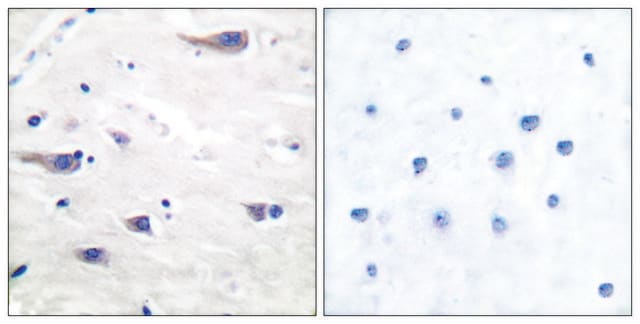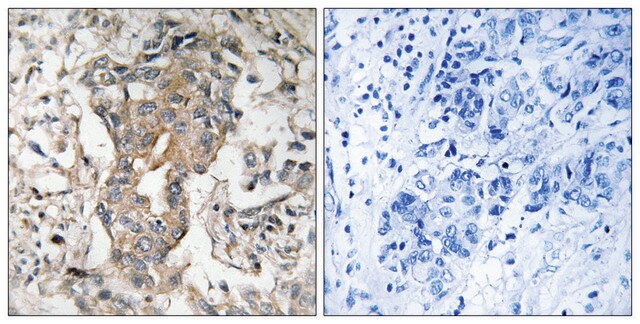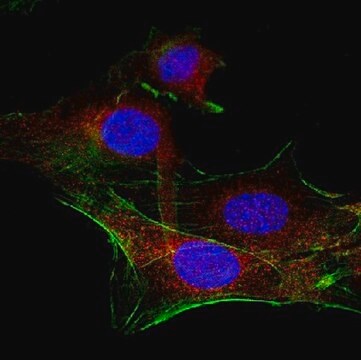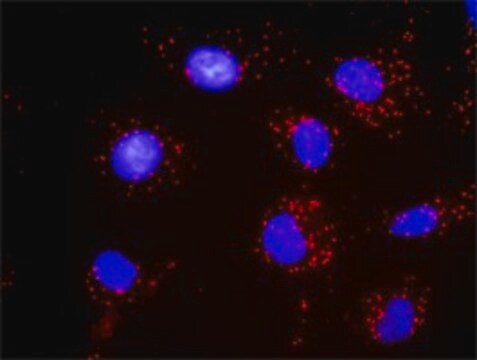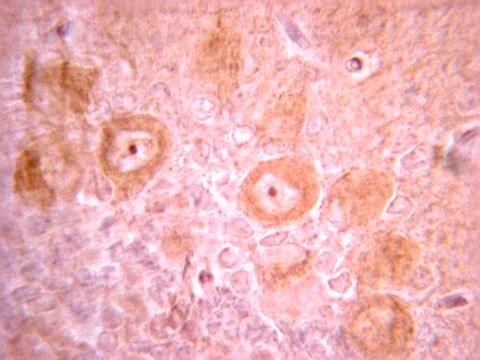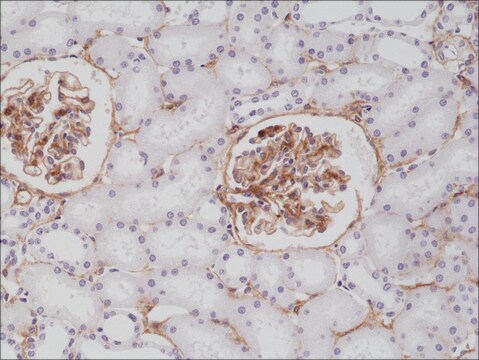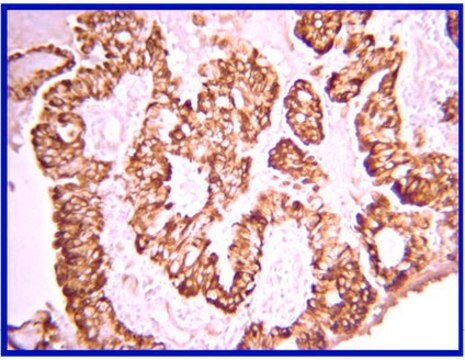SAB4700458
Monoclonal Anti-CD140b antibody produced in mouse
clone 18A2, purified immunoglobulin, buffered aqueous solution
Synonym(s):
Anti-PDGF-RB, Anti-PDGFRB
Sign Into View Organizational & Contract Pricing
All Photos(1)
About This Item
UNSPSC Code:
12352203
NACRES:
NA.41
Recommended Products
biological source
mouse
Quality Level
conjugate
unconjugated
antibody form
purified immunoglobulin
antibody product type
primary antibodies
clone
18A2, monoclonal
form
buffered aqueous solution
species reactivity
human
concentration
1 mg/mL
technique(s)
flow cytometry: suitable
isotype
IgG1
NCBI accession no.
UniProt accession no.
shipped in
wet ice
storage temp.
2-8°C
target post-translational modification
unmodified
Gene Information
human ... PDGFRB(5159)
General description
The monoclonal antibody 18A2 recognizes CD140b / PDGF-RB, the 180-190 kDa beta chain of platelet-derived growth factor receptor, which is widely expressed on a variety of mesenchymal-derived cells and plays pro-proliferative roles.
Immunogen
CD140b-transfected NIH 3T3 cells
Application
The reagent is designed for Flow Cytometry analysis. Suggested working dilution for Flow Cytometry is 1-5 μg/mL of sample. Indicated dilution is recommended starting point for use of this product. Working concentrations should be determined by the investigator.
Features and Benefits
Evaluate our antibodies with complete peace of mind. If the antibody does not perform in your application, we will issue a full credit or replacement antibody. Learn more.
Physical form
Solution in phosphate buffered saline, pH 7.4, with 15 mM sodium azide.
Disclaimer
Unless otherwise stated in our catalog or other company documentation accompanying the product(s), our products are intended for research use only and are not to be used for any other purpose, which includes but is not limited to, unauthorized commercial uses, in vitro diagnostic uses, ex vivo or in vivo therapeutic uses or any type of consumption or application to humans or animals.
Not finding the right product?
Try our Product Selector Tool.
Storage Class Code
10 - Combustible liquids
Flash Point(F)
Not applicable
Flash Point(C)
Not applicable
Choose from one of the most recent versions:
Already Own This Product?
Find documentation for the products that you have recently purchased in the Document Library.
Thomas B Layton et al.
Proceedings of the National Academy of Sciences of the United States of America, 119(13), e2120336119-e2120336119 (2022-03-24)
SignificanceTissue fibrotic diseases, for example of the liver and lung, represent a huge unmet medical need. In this study, using single-cell RNA sequencing, cytometry by time of flight (CyTOF), tissue imaging, and functional assays, we identify a complex vascular niche
Thomas B Layton et al.
Nature communications, 11(1), 2768-2768 (2020-06-04)
Fibrotic disorders are some of the most devastating and poorly treated conditions in developed nations, yet effective therapeutics are not identified for many of them. A major barrier for the identification of targets and successful clinical translation is a limited
Pablo Cruz-Martinez et al.
PloS one, 9(9), e108241-e108241 (2014-09-27)
Fibroblast growth factor 8 (FGF8) is a key molecular signal that is necessary for early embryonic development of the central nervous system, quickly disappearing past this point. It is known to be one of the primary morphogenetic signals required for
Anna Sophie Berghoff et al.
APMIS : acta pathologica, microbiologica, et immunologica Scandinavica, 122(9), 867-872 (2014-04-23)
Anaplastic lymphoma kinase (ALK) gene aberrations are found in several tumor types including anaplastic large cell lymphoma (ALCL) and non-small cell lung cancer (NSCLC). Crizotinib, an inhibitor of ALK-fusion proteins, has shown clinical activity, but resistance mechanisms limit long-lasting disease
Katsuhiro Kato et al.
Nature communications, 9(1), 2448-2448 (2018-06-24)
Blood vessels are essential for blood circulation but also control organ growth, homeostasis, and regeneration, which has been attributed to the release of paracrine signals by endothelial cells. Endothelial tubules are associated with specialised mesenchymal cells, termed pericytes, which help
Global Trade Item Number
| SKU | GTIN |
|---|---|
| SAB4700458-100UG | 4061832707556 |
Our team of scientists has experience in all areas of research including Life Science, Material Science, Chemical Synthesis, Chromatography, Analytical and many others.
Contact Technical Service